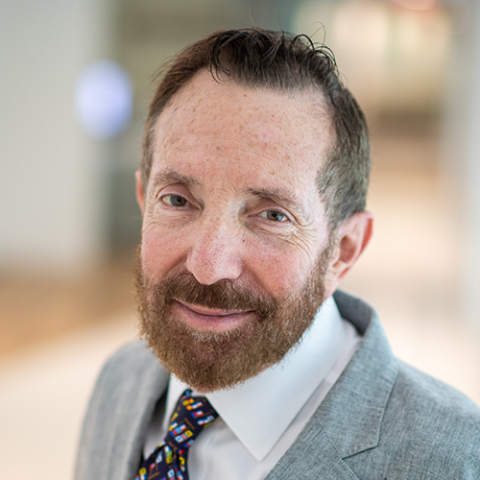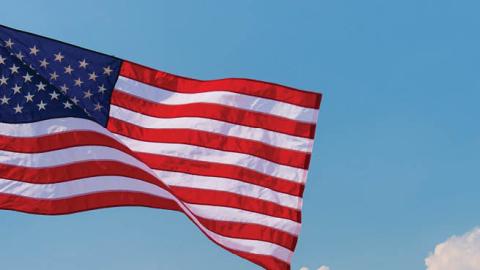Besides the guillotine, a zealous effort to reshape symbols, the arts, and society’s self-view characterized revolutionary France’s reign of terror. The Church was a target because of its top-down structure and links to the aristocracy; church property was seized, priests killed or banished; Notre Dame transformed into the “Temple of Reason.” Public showings of art swept away traditional themes replacing them with revolutionary ones—120 years before the dawn of “socialist realism.” As Simon Schama notes in his magisterial history of the French Revolution, images on playing cards eliminated kings and queens. The Gregorian calendar’s supposedly maleficent influence would end with a new way of marking time according to characteristics of the seasons.
The US is caught in a similar frenzy today. Since the killing of George Floyd in May last year, statues of famous historical figures have been routinely torn down or vandalized. These include Christopher Columbus, George Washington, Thomas Jefferson, and Ulysses Grant. In June and following the arrest of a Black Lives Matter protestor in Madison, Wisconsin, a mob tore down a statue of Hans Christian Heg. Heg was an abolitionist who died as a Union officer at the Battle of Chickamauga. His statue was thrown into a lake after being beheaded. Sacking people to satisfy their corporations’ political judgment or ameliorate their executives’ fear is now commonplace.
When a policewoman killed a young black man in a Minneapolis suburb on 11 April, the city manager told the press that “all employees…are entitled to due process with respect to discipline.” He added that “this employee will receive due process.” The mayor demurred. He fired the city manager.
In June, the New York Times editorial page published an article by a US senator that called for a military response to mob violence in many cities. The newspaper sacked the editorial page editor who, in a fashion reminiscent of Soviet and Chinese forced public confessions, apologized saying that “the essay…should not have been published.”
In San Francisco, where radical politics and nearby Silicon Valley corporations’ political leanings align, the school board favors renaming the Abraham Lincoln High School. Lincoln, it should be remembered, fought a civil war to preserve the Union and end slavery. However, according to San Francisco school authorities, he was insufficiently sensitive to American Indians.
Although no evidence exists that most Americans share what are misleadingly called “progressive” ideas—they are in fact radical—today’s question is whether the US is experiencing a fever from which it will recover or has arrived at a turning point in its understanding of liberty and equality that will shatter the tolerance and political balance to which the US constitution gave birth.
Until the ideas and policies of affirmative action took root in the 1960s, equality meant equality of opportunity. Everyone was equal in respect of the opportunities that their accomplishments merited—from a high school student who applied to college for admission to a military officer whose record determined whether he or she would be promoted.
“Equity,” the favored usage of American progressives, mean sameness of outcomes. If one group’s incomes exceed another, this is an inequity that must be flattened. If one group’s proportional representation in a profession is less than in the general population, the rule of equity must be similarly applied. In early April, United Airlines announced that half of the 5,000 pilots it plans to train between now and 2030 will be women or people of color. No accompanying evidence explained why women and minorities are not currently a larger portion of United Airlines’ pilots. The logical extension of replacing equality of opportunity with equality of outcome is the uplifting of identity over merit as a social and political end—except for sports.
The great observer of American democracy, Alexis de Tocqueville anticipated this in the early 19th century. Tocqueville recognized the dangers that would challenge the American republic. The tyranny of the majority is the best-known threat he saw—a fear shared by the founding fathers who created institutions like the Senate—that balanced the political power of the most populous states, and who countered the accumulation of power in a single branch of government.
But Tocqueville’s fear of the results of democratic excess, a general levelling of social, cultural, and political impulses, is more striking. Equality can easily transform into equity, and by extension muzzle the difference in character that makes individuals dynamic and a nation great. The transformation from equality to equity can flow as well from a minority as from a majority.
Writing about the dangers of excessive democracy, Tocqueville notes that “none but attentive and clear-sighted men perceive the perils with which equality threatens us, and they commonly avoid pointing them out.” (Democracy in America, Book II, section 2, chapter 1)
In America’s increasingly divisive and extremist politics, pointing out the perils of excessive equality is, with very few exceptions, rare. Writers and public men and women are understandably frightened to offer dissenting arguments. The irresistibility of group sentiment, another phenomenon Tocqueville identified with American democracy, all but quashes this.
So it is today in the US. The so-called progressives believe that free speech means public utterances with which they agree. They threaten, bully, and where possible, “cancel” those in disagreement. Accomplishment, merit, and qualification matter less than identity. The facts of the United States’ founding and remarkable political institutions, its history of forcibly ending slavery, the countering of post-Civil War savagery directed against black Americans, enfranchisement of black and women voters, defense of liberty in two World Wars and one cold one, Civil Rights Act, and election and re-election of a black president are being steadily replaced in secondary schools and academia by the idea that the US is an oppressor state whose crimes can only be expunged by financial restitution, the abolition of merit as qualification for education and employment, the silencing of any who would disagree, and a revision of history in which America’s greatness is exposed as a fraud.
Other fits have convulsed the US in the past. One—the prohibition against alcohol—even became a constitutional amendment that lasted from 1919 to 1933. This is a long time for so unnatural a fit. COVID and a lapsed economy are in part responsible for today’s convulsion. Nevertheless, the question remains Tocqueville’s: can the US survive the tension between a moderate understanding of liberty and equality with its founding principles intact?















